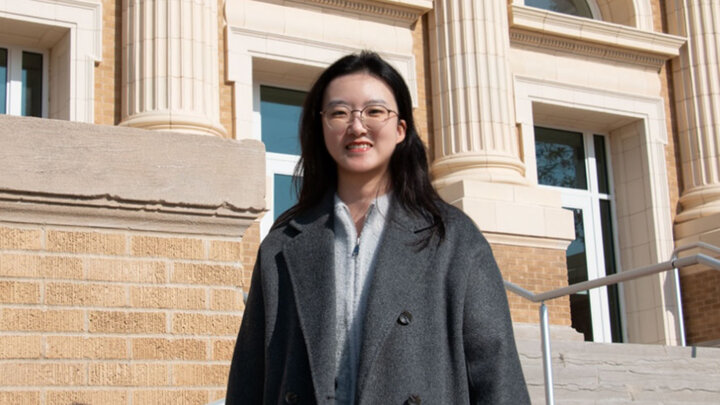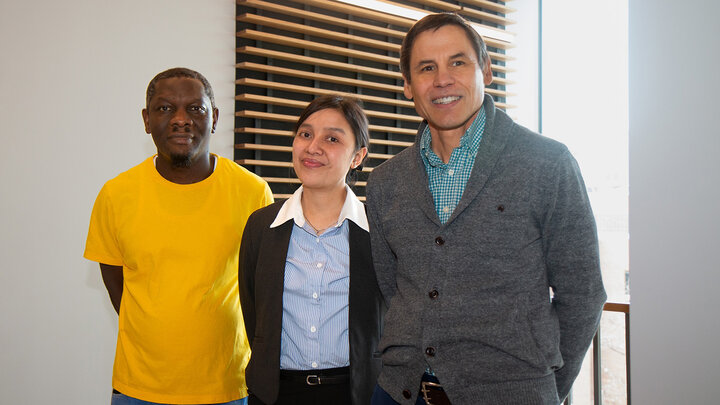Family dynamics among caregivers tend to be complicated. They can become even more complex when grandparents take on coparenting roles.
Weiman Xu, graduate research assistant at the Nebraska Academy for Methodology, Analytics and Psychometrics (MAP Academy) and a doctoral student in the Global Family Health and Well-being program within the Department of Child, Youth and Family Studies, is exploring the association between intergenerational coparenting and children’s social-emotional development.
Funded by a one-year graduate scholars grant from the Buffett Early Childhood Institute, Xu is investigating the child-rearing role of grandparents and the effect it has on children’s well-being — and the potential impact of their coparenting relationship with the child’s parents.
Xu, whose faculty mentor is Gilbert Parra, professor of child, youth and family studies, recently spent about 40 days gathering data in China’s Shandong Province. She distributed surveys to more than 700 families with children ages 3-6 and one or more grandparents are involved in raising the children. For each family, both parents and the primary grandparent shared information about their parenting views and responsibilities in the family.
Her study is designed to determine whether parent-grandparent coparenting and the quality of the parent-grandparent relationship are associated with child social-emotional development.
“I want to see whether coparenting with grandparents creates a significant influence, and whether that influence is good or bad,” Xu said.
Xu notes that traditional Chinese family values emphasize family cohesion and harmony, and respect for elders. Due to decreased family sizes and increase in maternal employment in China, she said, grandparental involvement in child-rearing has become more common.
“Almost 73% of grandparents in China are involved in child-rearing,” Xu said. “We are looking at the dynamics among these caregivers, and how those dynamics will affect the children involved.”
For example, Xu said, frequent arguments or other conflicts among parents and grandparents may be imitated by children in their own social contexts.
“Children learn from their caregivers — in this case, parents and grandparents,” she said. “Children notice how those caregivers deal with these interpersonal relationships, and will incorporate what they learn into how they will deal with their social problems in the future.”
Globally, only 16 published studies exist that examine the relationship between intergenerational coparenting and child development, all of which were conducted in China and the U.S. That shortage of research, Xu said, provides an opportunity for her findings to support future research.
She also aims to provide parents, grandparents and other caregivers with useful insights and strategies to work together in raising children, supporting both child development and family well-being.
“It is important to understand the role of grandparental involvement in child-rearing,” she said. “That understanding will help develop and enhance family cohesion and a harmonious environment for child development, but also will help the caregivers in navigating how to cooperate with one another.”
Learn more about the project in the CYFS Research Network.
College of Education and Human Sciences
Child, Youth and Family Studies




